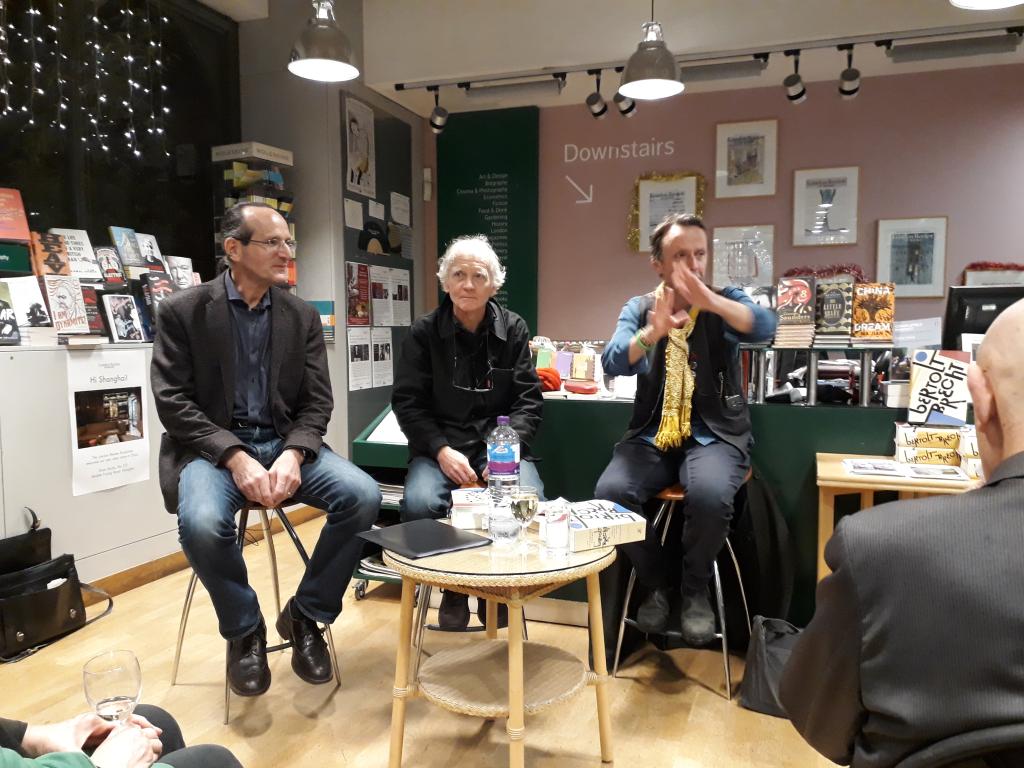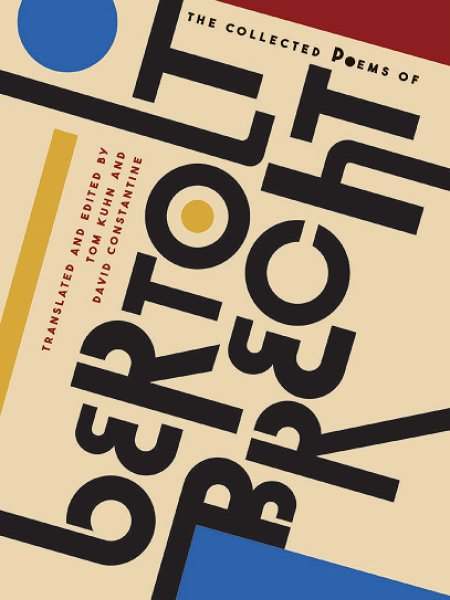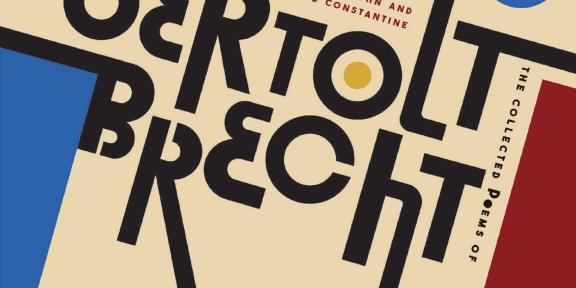
When many years ago I learnt
To drive, my teacher made me
Smoke a cigar, and if
In the bustle of traffic or in a tight bend it
Went out on me, he chased me from the wheel. He also
Cracked jokes while I drove, and if
Too occupied with driving, I didn’t laugh, he took the wheel
From my hands. I feel unsafe, he said
I, the passenger, take fright, when I see
The driver of the car too taken up
With driving.
Bertolt Brecht was always a contentious wheelman. The vehement and contradictory accusations levied against him, especially in theatre reviews, can be startling. First he was a dangerous Communist – then he wasn’t even a proper Communist at all (dangerous driver or feeble fellow-traveller?). He was a plagiarist; he exploited his collaborators; his poetry was fatally marred by his politics – or vice versa; he rammed his messages down our throats – or his plays were abstract and opaque; he was ponderous and earnest (a common fault amongst Germans) – or his satires trivialised Hitler and failed to take fascism seriously. The spectacular rise of a socially difficult Bavarian Communist (yes, he was a Communist) to ‘world literature’ seems to cry out for analysis and commentary. For the past five years I have been engaged with an international team of scholars in a two-pronged research project. For the one part we have investigated the mechanisms of cultural transmission which have helped Brecht to such huge success in the world’s theatres, from South America to the Far East (in both of which he is arguably more important than in much of Europe). The climax of this work was a major international conference, held in St Hugh’s College in 2016, which resulted, alongside other smaller outputs, in a book publication, Recycling Brecht. The other prong has been the team’s own work to extend the corpus of Brecht’s work available in the English language. It turns out we were shamefully behind the French and Italian editions, behind the Turkish edition. Now the AHRC part of the funding for this project is coming to an end, and it seems right to take stock. The work has been supported as well by the University, St Hugh’s College, the German Toepfer Foundation, several private individuals, the Brecht heirs, and the publishers, Suhrkamp, W.W. Norton, Camden House and Bloomsbury. So this is not necessarily the end of the journey; all the same, it is a slowing-down and a pause.
The first thing to say is that it has been a privilege to work with all these partners and with scholars across the UK, the US and Germany (and several other outposts). A particular pleasure has been the exchange with performers, writers and theatre practitioners, who have been an integral part of the work from the start. Throughout, we have aimed not just to interest colleagues in the academic world, but also to engage or reach out to other audiences and readerships. Major publications include, alongside the work on recycling and transmission, two volumes of Brecht’s theoretical writings (2015), a historical novel on The Business Affairs of Mr Julius Caesar and a collection of Chinese-inspired aphorisms and philosophical titbits, Me-ti (both 2016), a volume documenting a series of important unfinished dramatic projects, Bertolt Brecht and the Writer’s Workshop (due early in 2019), and (also in 2019) a series of satirical dialogues, The Refugee Conversations – which carries a motto from P.G. Wodehouse, a rather startling writer to find associated with Brecht. In the meantime there is the entirely new Collected Poems of Bertolt Brecht, translated by David Constantine and me, which runs to 1300 pages and contains some 400 poems that have never been seen in English before. That appeared in November 2018.

I am sitting by the side of the road.
The driver is changing the wheel.
I don’t like where I was.
I don’t like where I am going to.
Why do I watch the changing of the wheel
With impatience?
The extraordinary work of translating poetry vouchsafes insights that might be hard to win by other means. Translating is the most rigorous form of close reading, and at the same time forces the translator to address that trickiest issue of transmission. It is probably no exaggeration to say that David and I are now two of the people who know Brecht’s vast and varied oeuvre of wonderful poetry best. There will be numerous spin-offs from this work, but let me focus for the moment again on the public-facing. Consonant with the programme we have developed over the years, there was a public book launch at the LRB Bookshop in London on 20 November (featuring readings by one of Brecht’s grandchildren, the theatre director and performer Johanna Schall). Then, and throughout 2019, we are putting together a series of concerts, readings and performances, starting in February in Brecht’s birthplace, Augsburg, then moving back to London, Oxford and around the poetry and literary festivals of the UK, and culminating in June in Leipzig. One firm date in London is at Jewish Book Week on 9 March in King’s Place.
You will long since have gathered that all this is much more than the work of one person. The collaborative relationships with a small battalion of scholars and Brecht experts have been energising and wonderful. It has been a joy to work in teams and with dedicated research assistants, to commission work from long-time acquaintances, onetime students and newly discovered friends. Above all, we have been struck, time and again, that, far from being passé, too historically specific or too abstract, or humourless, or in whatever other way missing its mark, in fact Brecht’s work can be as topical, direct, urgent and unsettling for modern readers as it was for his own contemporaries. Recent highlights have included work with an Oxford charity for the homeless, Crisis; a collaboration with composers Richard Thomas and Niels Rønsholdt; and a joint project with a Berlin graphic workshop for the disabled. The resonance we have had from our public work has been at least as exciting as the response of the scholarly community. Please visit our website for more information and news on all this activity: http://brecht.mml.ox.ac.uk/ or follow @writingbrecht on Facebook or Twitter. Sign up for one of the forthcoming events in your area – it would be a pleasure to see you there.
Driving along in a comfortable car
On a rainy country road
We saw a raggedy man at nightfall
Who waved to us to give him a lift, and gave a deep bow.
We had a roof and we had room and we drove on past
And we heard me say in a surly voice: no
We can’t give anyone a lift.
We had gone some distance further, a day’s march perhaps
When I suddenly took fright at this voice of mine
This behaviour of mine and this
Whole world.
